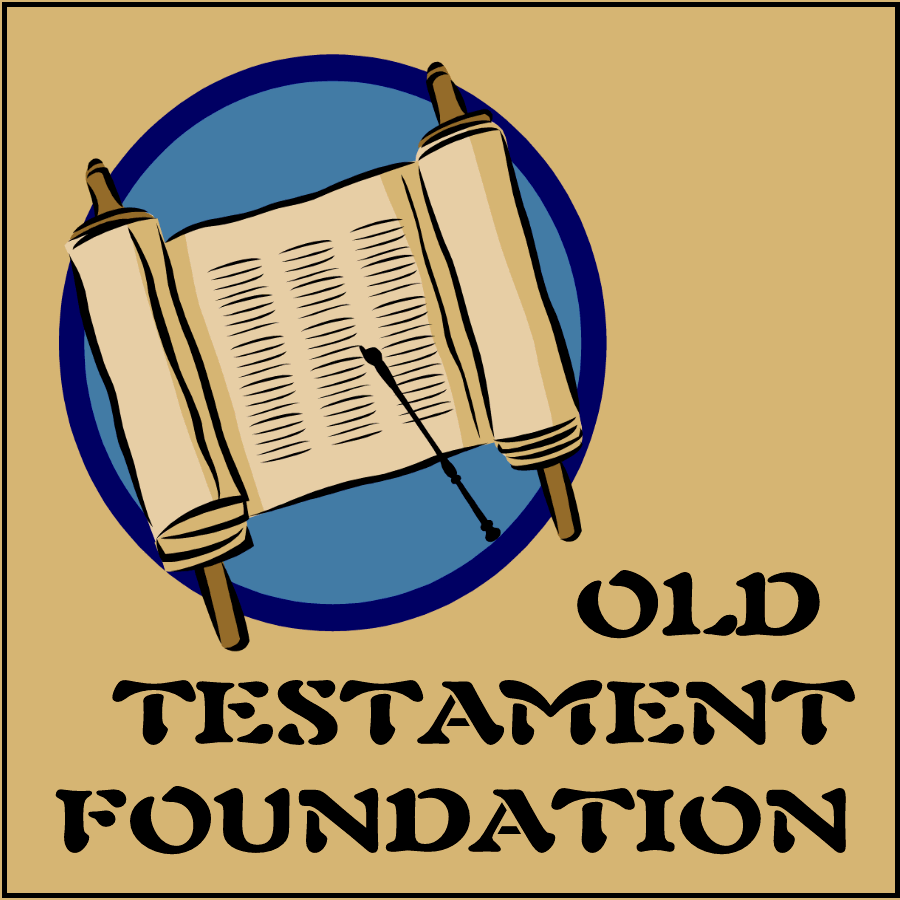|
       
|
|



|

|
Still
Available:
Repent
and Be Baptized
|
Feedback is welcome… encouraged… desired…
|

|

|

|
|
Leave a
comment in my guestbook, or just say hi!
|
Find me on
FaceBook
|
Send me an
Email
|
Welcome
Nearly all
Biblical scholars agree that even the most cursory reading of the Gospels
reveals a simple fact-- the subject most often spoken of by Jesus Christ was
that of the Kingdom of God. The exact meaning of that term, however, seems to
have been misunderstood in many Christian circles. It is the purpose of this
website to put forth an understanding of the Gospel of the Kingdom, and
hopefully broaden the reader's understanding of this great subject, which can
be described as the central theme of not only the Gospels but the entire
Bible. READ
COMPLETE INTRODUCTION...
SEE ALSO:  

|
|

|
Site
Overview
While any of the articles on
this site can be read separately, each one frequently refers back to, and
builds on points from, other articles. The Overviews of each section
will give the reader a good overall grasp of the subject, while the articles
in each section provide more in-depth coverage of the main topics. Below is
an overview of the sections and how they progress, with brief descriptions of
each article. The articles themselves are linked wherever a point is made
that refers to something dealt with elsewhere.
|
|

|
The
first section, What It Is Not, deals with some of the more
common misconceptions about the gospel and the kingdom, which do not
hold up under closer scrutiny. It includes the following articles:
- Kingdom of Heaven or of God? - There is no
distinction between these terms; they are synonymous.
- What is the Gospel? - Many Christians miss the
main theme of Jesus' Gospel, thinking it is only about his death and
resurrection. Many also think the Kingdom of Heaven is a Kingdom IN Heaven,
but Jesus taught otherwise.
- Dispensationalism - This system of theology is not
based on solid Biblical foundation and “wrongly divides” the
Scriptures.
- One Gospel - There is not a new message for the
Church that contradicts or in any way replaces the gospel that Jesus
himself preached; his followers all preached the same gospel of the
Kingdom.
- The Hebrew Origins of the Bible - The Bible must
be understood in light of its Jewish background, or the very meaning of
its terms will be misunderstood.
|
|

|
The
second section, Old Testament Foundation discusses how the
foundation of the Kingdom of God is unfolded throughout the Old Testament.
This must be understood in order to know what Jesus was talking about. It
includes the following articles:
- In the Beginning - From creation on, God had a
plan for man, and it included living and reigning on planet earth, not
in some ethereal “home beyond the blue.”
- The Promises to Abraham - After the world was
messed up by man's sin, God's plan of redemption began to unfold with
promises to Abraham, which included land, descendants and blessings for
the whole world.
- The Promised Land - The children of
Israel possessed the land of Canaan under Joshua, and their territory
expanded under David and Solomon. But this was not the complete
fulfillment of the Abrahamic land promise.
- The Lord's Anointed - God's plan was
that a man anointed by Him would rule the people in the Promised Land.
But He knew that they would not keep the Law and would be driven from
the land. Yet He promised David that a descendant of his would sit on
his throne, and of that kingdom there would be no end.
- The Kingdom in the Prophets - Israel still did
not stay faithful and received judgment and punishment for it. Yet God
did not give up on them. The Prophets spoke at length of a time when
Israel would be restored to the land, and God's Anointed King would
reign over the whole earth.
|
|

|
The
third section, Kingdom Come, deals with Jesus' proclamation that
the Kingdom promised in the Old Testament was near, and that he was indeed
the Messiah they had waited for. He called on his hearers to repent and
believe the Gospel. This section includes the following articles:
- The Kingdom is Near - Jesus declared that the
Kingdom was “nigh” or “at hand.” This means it
was “near,” not that it had arrived. This becomes clearer
when we understand what Jesus meant by the Kingdom.
- Mysteries of the Kingdom - Jesus taught his
disciples that there would be an interim period before he would begin to
rule in his Kingdom. This period and its nature and purpose were
mysteries before Jesus revealed them to his disciples.
- The New Covenant - God promised a New Covenant
through His Prophets. Jesus ratified it with His blood. We are now heirs
of the Kingdom, but we will inherit it in the future. Yet in the
meantime we have a foretaste of what we will ultimately inherit.
- In Anticipation - A few verses speak of the
Kingdom being present in an anticipatory and preparatory sense. They
must be considered and understood in light of the many clear verses
about the Kingdom.
- Kingdom Redefined - When the kingdom did not
happen, many began to redefine it. Some say it's the Church; others say
it's a spiritual reign in the heart of man.
- Only For Israel? - The disciples throughout Acts preached
the same Gospel Jesus did, to both Jews and Gentiles. Nowhere is there
an indication that it is only for Israel, or that it is “held in
abeyance” until a future time.
|
|

|
The
fourth section, Kingdom Living, deals with how we are to live in
light of the present and future aspects of God's Kingdom. It includes the
following articles:
- Righteousness - Jesus presented a new
standard, involving the heart instead of outward behavior modification.
- The New Birth - Only by being born again can we
have the inner change necessary to give us the heart that Jesus spoke
of.
- The
Spirit and the Word - The Holy Spirit is closely associated with
God’s Word. It is the Word and the Spirit that indwells the
believer and brings about regeneration.
- Law Or Grace? - If there is only one Gospel, do
we keep the Mosaic Law? Paul talks about the difference between the Old
and New Covenants, and Jesus' words are not a new set of outward laws.
- Living By Faith - We are supposed to live
by faith, but what does that mean? This word also is largely
misunderstood, but it's as simple as trusting that God told you the
truth, and obeying accordingly.
|
|

|
The
fifth section, Future Events, examines the prophecies dealing
with the events which lead up to the Lord's return to set up the Kingdom. It
includes the following articles:
- Foundations of Prophecy - There are certain
principles that must be observed when studying Biblical Prophecy. One of
them is having a knowledge of the Hebrew Prophets. Finding references in
the New Testament to things prophesied in the Old helps to put together
the puzzle.
- Three Schools of Thought - There are three
basic schools of thought regarding the interpretation of prophecy,
especially regarding the words of Jesus in the Olivet Discourse. Jesus
told his followers what to watch for; we should be watching too.
- This Generation - One of the more
difficult puzzles any viewpoint must handle is dealing with Jesus'
statement that “this generation” shall not pass before all
these things are fulfilled.
- A Secret Rapture? - Will the Lord return
“in secret” before the Great Tribulation and take his Church
somewhere else? The Bible doesn't support this view.
- The Destruction of the Wicked - The Bible speaks
of the ultimate destruction of the unrepenting wicked, not of endless,
conscious torture.
- The Age To Come - After all the prophesied
events are complete, God will have what He always wanted: a perfect
world full of people who love Him and worship Him forever more.
|
|

|
“A CLOSER
LOOK”
In addition to the above outline, there are a number of subjects which are
expanded on and handled in more detail in separate articles. Each of these
may have links to them from a number of places on the main pages. Below is a
list of all the Closer Look articles on this site:
- The Gap Theory - Was there a gap of millions of
years between Genesis 1:1 and 1:2?
- The State Of The Dead - Are the dead conscious in
heaven, or are they “asleep” as the Bible describes them?
- Who Is Messiah? - The mission of Jesus the Messiah
involved him being a man, the only begotten Son of God, who perfectly
communicated His Father to mankind.
- Baptism - Is water baptism obsolete, or is there
a purpose for it in the Church today?
- Once Saved Always Saved? - Is a person
“saved” if he believes for a moment but later turns away
from God and stops believing?
- The “More Abundant Life” - A
rethinking of the “abundant life” or “prosperity and
health” gospel.
- Gathering Data - All the New Testament uses of
Kingdom of God / Kingdom of Heaven.
- The Kingdom in the Early Church Fathers - An
examination of the references to the Kingdom of God in the writings of
the Early Church Fathers, showing the development of various doctrines.
- The Johannine Comma - An examination of the textual
evidence for and against I John 5:7-8, referring to the “three
witnesses.”
- The Last Days - What and when are the Last
Days according to the Bible? Are they only the time just prior to
the return of Christ?
- Speaking in Tongues - A thorough examination
of this controversial subject. Is the modern Pentecostal and
Charismatic phenomenon a genuine revival of the Biblical gift of
languages?
- New Covenant Commandments -
The New Testament includes admonitions to obey the commandments of
God. Does that mean the Ten Commandments of the Law of
Moses? Or are the commandments of Jesus our standard?
- The Three Parts of Man Fallacy
- Does man consist of three parts – spirit, soul, and body?
What is the difference between created, formed, and made; between
soul and spirit; or between the spirit of God and the spirit of man?
- This Old Earth - The theory of evolution is
thought by many Christians to be anti-God. But what if evolution were a
tool God used in His creation? An introduction to Old Earth
Creationism.
- Dual
Fulfillment of Prophecy - Many prophecies have a dual
fulfillment. There is an ultimate fulfillment and also a more
immediate fulfillment that functions as a type of the ultimate.
- The Holy Spirit of God
- Expanded background dealing with what the Holy Spirit is and is not.
|
|

|
Another section, called Etcetera,
is a place for various other writings. They include:
- What Day Did Jesus Die? [FURTHER REVISED
AND EXPANDED]
- Did Jesus die on
Friday or Wednesday? And why does it matter?
- Jesus and the Passover [NEWLY REVISED
AND EXPANDED] - A
Followup article to “What Day Did Jesus Die?” dealing with
several arguments that have been put forth regarding the day Jesus died
and its relation to Passover.
- Seeking The Truth - A description of some of my search
for truth, and why I believe what I do.
- Feedback - Some email comments I received about
this site shortly after putting it up.
- Textual Evidence and the Great Commission -
Extracted from Repent and Be Baptized, this study examines the
claims that Matthew 28:19 and Mark 16:15 are of doubtful validity,
especially in light of Jesus' command to baptize in the “Great
Commission.”
- Is Christmas Pagan? - Some well-meaning
Christians insist that Christmas is derived from Pagan festivals and to
observe it is to embrace Paganism. This article examines the origin of
that claim, and the origins of Christmas celebrations.
- Refuting Preterism - Preterism is the
belief that all or nearly all of the end time prophecies were fulfilled
in the past. The main arguments for this belief are those verses
that seem to indicate timing. This article presents a list of them
with responses and explanations
Back To The
Top
|
|
|

|














